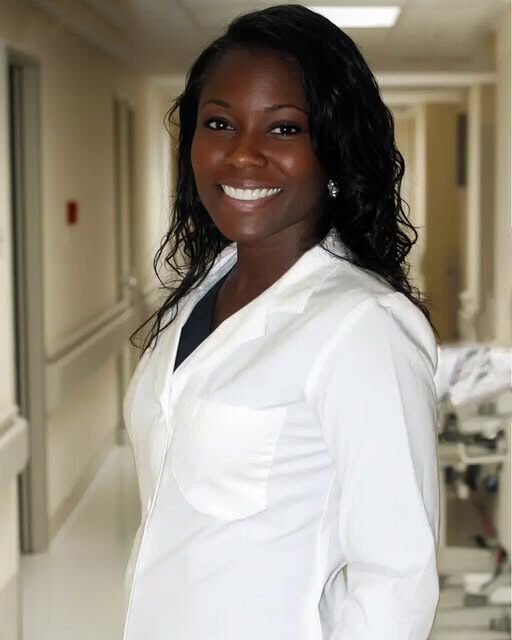My badge said Dr. Jamison.
Freshly ironed coat. First week in internal medicine. I was supposed to keep my head down and follow protocol.
Then Room 426 coded.
He was an older man, no ID, brought in unconscious from a bus stop collapse. No family. No history. Just a Jane Doe file in reverse. I was leading chest compressions when it happened.
Flatline.
We called it. 5:43 p.m.
But as the room went quiet, he opened his eyes.
Just for a second.
And he said my real last name. The one I changed when I turned sixteen.
He whispered, “Marilyn Osei… I kept the photo.”
No one else heard him. His vitals never came back.
But when I got back to my locker, taped to the inside of the door… was a faded picture I hadn’t seen in thirteen years.
I stared at it, heart thudding louder than any code alarm. It was the photo—me at three years old, sitting on a swing, gap-toothed and sunlit, my mom’s handwriting scrawled on the back:
“For Papa. Love, Marilyn.”
Only three people ever had that photo.
Mom. Me.
And my grandfather.
The one who disappeared when I was six.
I sank to the bench in the locker room, photo trembling in my hands. I hadn’t heard that name in years. Marilyn Osei—my birth name. The one I legally changed after Mom passed and I entered foster care. I became Jamie Jamison to survive. To disappear. To rewrite the story.
But he knew.
Somehow, he knew.
I didn’t even know what he looked like as an old man. Mom said he left before my seventh birthday. That he had problems. That he loved me, but not in ways that made sense to the world. There were no photos past 1999.
I thought maybe he was dead. Or didn’t care.
But then Room 426 flatlined.
And whispered my name.
I went back through the hospital records, shaky hands flipping pages like a detective chasing ghosts. The only ID he’d come in with was a jacket stitched with the name “Obed.” No last name. No wallet. Just a train pass from two cities over and a note scribbled in shaky handwriting that said:
“To see her.”
The timestamp on the ER intake? One hour before my shift started.
I spoke to the night nurse who’d received him. She remembered the jacket. “Homeless, maybe. Mumbled something about a doctor he needed to find. Thought he was confused.”
She paused. “But before we lost him, he kept asking… ‘Is the girl here?’”
I didn’t know what to feel.
Grief? Regret? Relief?
He left us. Left Mom. But then again—he came back. At the end, when most people drift away from the world… he moved toward something. Toward me.
I requested access to the belongings we’d stored in the lost items room. His coat was there. So was a pocket-sized Bible, worn at the edges, and a folded newspaper clipping:
“Local Teen Wins Biology Scholarship”
There I was. Seventeen. Smiling too big, in an ill-fitting blazer, holding a plastic award at the community college podium.
The date on the paper? Three years ago.
That meant he’d been watching. Somehow. Somewhere.
I didn’t tell anyone. Not my attending. Not the other residents. Some things sit too heavy on the tongue. I signed the forms, claimed the body, and quietly scheduled a cremation. The hospital chaplain offered to say a prayer.
I said yes.
When the ashes came, I brought them to the park I vaguely remembered from childhood—the one with the rusted swing and the duck pond. I sat there alone on a cold bench and whispered what I never got the chance to say.
“I forgive you.”
And then, quieter:
“Thank you for remembering me.”
Life Lesson:
Not all family ties come with photo albums or Sunday dinners. Some love arrives late, messy, and wordless. But sometimes, showing up at the end—when there’s nothing left to give—is the most honest kind of love there is.
If this story touched you, share it. Someone out there might still be carrying a name they’ve tried to forget—and need a reason to remember it with grace.
🕊️ For the ones who came back, even just for a second.




